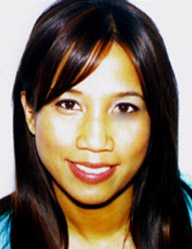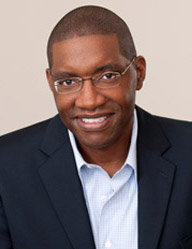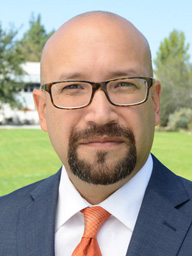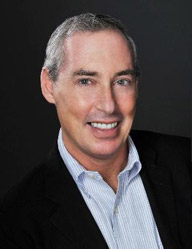CSUN Envisioning California Lecture to Explore the Year of the Angry Voter
This is the year of the angry voter. Americans are upset at political elites, and the result is a drawn-out process with the potential for contentious party conventions in which there is no presumed nominee.
Just whom those angry voters are, what they are angry about and how their anger will impact the outcome of the 2016 presidential election will be the topic of a special panel discussion hosted by California State University, Northridge’s Center for Southern California Studies on Thursday, April 28, at the university.

Marisa Abrajano
Taking part in the annual Envisioning California Lecture, “The Year of the Angry Voter: Your Guide to the 2016 Elections,” will be Dan Schnur, director of the University of Southern California’s Jesse M. Unruh Institute of Politics; Kareem Crayton, a visiting professor at Vanderbilt Law School; Adrian Pantoja, a senior analyst at the Latino political opinion firm Latino Decisions; and Marisa Abrajano, an associate professor of political science at University of California, San Diego. The discussion is free and open to the public and is scheduled to take place at 7 p.m. in the Little Theatre in Nordhoff Hall, near the southwest corner of the campus located at 18111 Nordhoff St. in Northridge.
“Every election year is unique,” said CSUN political science professor Lawrence Becker, director of the Center for Southern California Studies. “But the 2016 election is different from all the rest in the various ways it has confounded analysts, political scientists and pundits alike. We’ve put together a terrific panel with diverse perspectives to help us all make sense of this unprecedented electoral landscape.”

Kareem Crayton
Abrajano’s research at UC San Diego focuses on campaigns and elections, Latino politics and race and politics. She is the author of numerous journal articles and book chapters, as well as several books, including “Campaigning to the New American Electorate: Television Advertising to Latinos.” More recently, she co-authored “White Backlash: Immigration, Race and American Politics.” In addition to contributing to the panel discussion, Abrajano will serve as the evening’s moderator.
Crayton’s work addresses the varied effects of state-sanctioned racial exclusion and discrimination on campaigns, elections and governance in the political system. He also is managing partner of Crimcard Consulting Services, a firm he founded to assist communities globally in their effort to seek political efficacy and equality. Among other projects, he led a group of academics who submitted a widely cited amicus brief to the U.S. Supreme Court in Shelby County v. Holder, a 2013 decision that struck down key provisions of the Voting Rights Act of 1965.

Adrian Pantoja
Pantoja is a professor of political science and Chicana/o studies at Pitzer College, in addition to being a senior analyst for Latino Decisions. His research is focused on Latino political opinion and voting patterns. His work has appeared in the top journals in the field. He also has done research for such organizations as Center for American Progress, the National Association of Latino Elected Officials and the National Resources Defense Council.
In addition to his work at USC, Schnur is an adjunct professor at the University of California, Berkeley’s Institute of Governmental Studies. He has worked on several presidential and gubernatorial campaigns, including serving as national communications director for Sen. John McCain’s presidential campaign in 2000. In 2010, Schnur was appointed chairman of the California Fair Political Practices Commission and, after completing his term, he registered as a no-party preference voter and launched Fixing California, an organization dedicated to campaign finance and political reform.

Dan Schnur
The Center for Southern California Studies was established in 1996 to provide research, education and service on public policy issues facing Southern California. The center advances its objectives by integrating policy dialogue and research with community involvement to affect change throughout Los Angeles.
Though the discussion is free, seating is limited and reservations are required. To make a reservation, visit www.csun.edu/cscs. Parking on the CSUN campus is $6, and permits may be purchased at the Information Booth located on Prairie Street just east of Darby Avenue, or at kiosks in the student parking lots.
Sign-language interpreters, note takers, real-time captionists or assistive-learning devices are available for this event. Requests for such services must be submitted at least five working days in advance.

 experience
experience